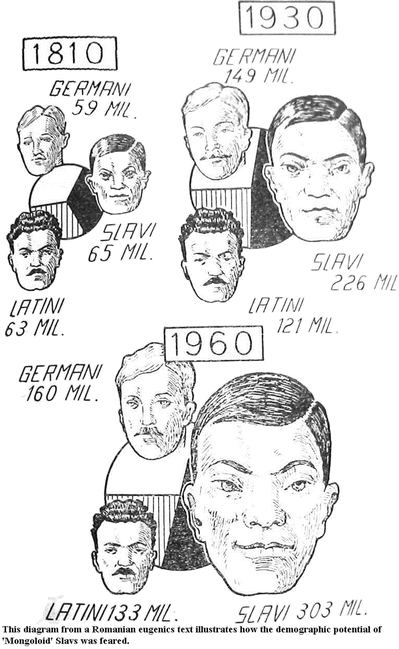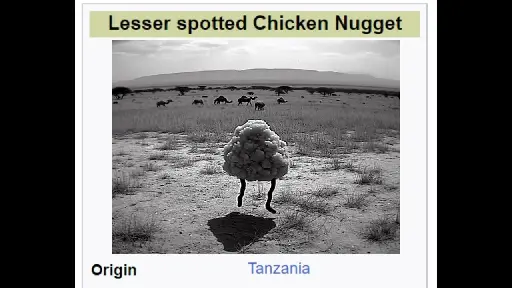
I hope that when you grow up, you manage to reconnect with your humanity.
The same to you then.
You remind me of the people who complain about talk of gun regulations after mass shootings.
I'll shut up when we mourn the death and maiming caused by the use of cars.
Did you mean "burn it to the edges!" ?
“We must prioritize policies that protect our economy and our way of life. CO2 is an essential nutrient for mass, driving growth and boosting plant production. According to the CO2 Coalition, higher CO2 levels have led to healthier crops and improved food security worldwide,” said a UCP member speaking in favour of the policy who cited the notorious CO2 Coalition.
Well, that is the core of conservatism (the first bit).
The flaming leopards are going to become obese.
The UN seems to be running out of vocabulary to describe how serious the danger is.
"they should've sent a poet"
Writing code is bad!
Writes condensed configurations and properties files in 3 different languages instead. Cloud deployment uses yet another source of configurations and properties.
Doesn't write documentation for configuration and properties.
Ah, yes, that's much more readable.
Example reason: https://mastodon.social/tags/FloatingCars
A lot of redevelopment and migration is needed.
Unraveling a $130 million web of climate denial, political extremism, and Trump campaign ties.

>For decades, oil and gas magnate Charles G. Koch and his late brother David fought vigorously for environmental deregulation, including by supporting groups that sow doubt about the science of manmade climate change. Foundations linked to Koch gave at least $9.6 billion to 15 Project 2025 groups since 2020. But four of the lesser-known families — Bradley, Scaife, Seid, and Uihlein — gave even more, and all six family fortunes helped to fund Project 2025 groups that have denied the science of manmade climate change.
Different study:
Early-life microbiota seeding and subsequent development is crucial to future health. Cesarean-section (CS) birth, as opposed to vaginal delivery, affects early mother-to-infant transmission of microbes. Here, we assess mother-to-infant microbiota seeding and early-life microbiota development across six maternal and four infant niches over the first 30 days of life in 120 mother-infant pairs. Across all infants, we estimate that on average 58.5% of the infant microbiota composition can be attributed to any of the maternal source communities. All maternal source communities seed multiple infant niches. We identify shared and niche-specific host/environmental factors shaping the infant microbiota. In CS-born infants, we report reduced seeding of infant fecal microbiota by maternal fecal microbes, whereas colonization with breastmilk microbiota is increased when compared with vaginally born infants. Therefore, our data suggest auxiliary routes of mother-to-infant microbial seeding, which may compensate for one another, ensuring that essential microbes/microbial functions are transferred irrespective of disrupted transmission routes. https://www.cell.com/cell-host-microbe/fulltext/S1931-3128(23)00043-4
McDonalds soon:

This better not lead to some Eugenics AI.
I wonder how much of that was the show's writers.
It's obsessed with fantasies as an escape from the dystopia it creates in reality. A better world is actually possible.
"Alternative facts"
It's how religions work. The positive bullshitting is not much different than a sermon full of made up anecdotes - stories with the purpose of "evoking a deeper truth".
This is literally the "WOLOLO!" meme in action...
They need to use different tactics. I don't mean just caltrops.
Ballistas affer!!
cross-posted from: https://lemmy.world/post/20824402
> Automaker's latest subscription model takes nickel-and-diming to new heights
A pair of psychologists and an economist at the University of Turku, in Finland, have found that because the average electric vehicle (EV) owner is wealthier than the average person, they still have a bigger than average carbon footprint.

> Maybe EVs are not a comprehensive climate solution??
A pair of psychologists and an economist at the University of Turku, in Finland, have found that because the average electric vehicle (EV) owner is wealthier than the average person, they still have a bigger than average carbon footprint.

> Maybe EVs are not a comprehensive climate solution??
In contrast to the simplistic notion that capital unilaterally imposes consumption upon us, German scholars Ulrich Brand and Markus Wissen, authors of The Imperial Mode of Living, emphasize a dialectical analysis in which capitalist domination “draws on the wishes and desires of the populace … becom...

> >UB: To start with, we tried to argue with our book against a very dynamic treatment dealing with ecological crisis: what we call green capitalism, or the green economy, or ecological modernization of capitalism. Which is: we have a problem with the combustion engine so it should be the electric engine. This will not be sufficient, we know, because the resources have to come from the South and there is still the space problem. > > >We prepare our argument of solidary mode of living against a strong expectation of the green side of the government in Germany and Austria that we don’t have to question our imperial mode of living: we green it a bit. There’s a greening ecological modernization, if you like. I’m sure in Canada you have similar debates. Even many movements believed it; not the radical movements, but many NGOs and so on. > > >We argue: no, if we take the problem seriously: that we have to get rid of the capitalist growth imperative, that we have to get rid of the world resources market, this enormous flow from the South to the North. We need principles but also to take seriously experiences and then certain policies towards the solidary mode of living. This chapter is a first attempt. It’s very comprehensive and it was also criticized—which is why we’re writing another book. > > >But you point at a distinction which to us seems crucial: the distinction between the subjective preconditions and the objective preconditions. We don’t accept an environmentalist discourse that says “it’s just behaviour, it’s just the consciousness.” But we also don’t say, “it’s just the policy framework.” We say that if we want a real mobility transition, but only from the combustion engine to the electric engine, we need an understanding via conflicts and via learning processes that the car is not only not necessary but it’s not attractive. It’s a struggle over subjectivities that what we call the “automobile imperial mode of living” or “imperial automobility” is not any longer possible. > > >The objective conditions are the other infrastructures, the other production systems, which means also a loss of jobs. I work a lot with trade unions on this. A reduction of the car industry means to rethink how the production of mobility is organized and to take the power from the automotive industry and to produce much more the means for public transport. The argument from the automotive industry is always: “There is job loss.” And the unions are on their side. It’s necessarily to convince them to have good public transport—which does not mean planes but a good train and bus system—means also to create jobs. This is the subjective and objective. > > >Then, we have some principles. One principle, since we come from critical theory, is that the care principle—a principle to organize society carefully: to have care for yourself, for others, for nature, for society—should overrule the profit principle of the large companies. At the large scale of the automotive industry and military, the profit motive turns into political power. We have to reduce certain production but we also have to change property relations. > > >Another principle beside this care principle is to rebuild the public sector. Of course, we have many problems with the public sector. Corruption, inefficiency: we are aware of these things. But to guarantee basic provisioning, we need a strong public sector because this can be made responsible. When it comes to pensions, when it comes to health, when it comes to education, the private principle is “who has the money?” The public principle is that it’s a social right. > > >Finally, we argue that we need strong social movements, which are usually the indicators of the need of radical change. We have this wonderful movement in Germany to leave the coal in the soil and the anti-nuclear movement that has decades of experiences and work. At the end, it’s political contestation: it needs to be armoured—to draw on Gramsci—with coercion and the finances of the state. It needs a macro perspective. It’s not enough to remain within a niche. But we defend that the radical innovation usually comes from the edges. For example, we don’t argue “we have to wait until the majority wants it.” We need these starting points of an emancipatory politics, which means criticizing domination in a manyfold sense.
In contrast to the simplistic notion that capital unilaterally imposes consumption upon us, German scholars Ulrich Brand and Markus Wissen, authors of The Imperial Mode of Living, emphasize a dialectical analysis in which capitalist domination “draws on the wishes and desires of the populace … becom...

>UB: To start with, we tried to argue with our book against a very dynamic treatment dealing with ecological crisis: what we call green capitalism, or the green economy, or ecological modernization of capitalism. Which is: we have a problem with the combustion engine so it should be the electric engine. This will not be sufficient, we know, because the resources have to come from the South and there is still the space problem.
>We prepare our argument of solidary mode of living against a strong expectation of the green side of the government in Germany and Austria that we don’t have to question our imperial mode of living: we green it a bit. There’s a greening ecological modernization, if you like. I’m sure in Canada you have similar debates. Even many movements believed it; not the radical movements, but many NGOs and so on.
>We argue: no, if we take the problem seriously: that we have to get rid of the capitalist growth imperative, that we have to get rid of the world resources market, this enormous flow from the South to the North. We need principles but also to take seriously experiences and then certain policies towards the solidary mode of living. This chapter is a first attempt. It’s very comprehensive and it was also criticized—which is why we’re writing another book.
>But you point at a distinction which to us seems crucial: the distinction between the subjective preconditions and the objective preconditions. We don’t accept an environmentalist discourse that says “it’s just behaviour, it’s just the consciousness.” But we also don’t say, “it’s just the policy framework.” We say that if we want a real mobility transition, but only from the combustion engine to the electric engine, we need an understanding via conflicts and via learning processes that the car is not only not necessary but it’s not attractive. It’s a struggle over subjectivities that what we call the “automobile imperial mode of living” or “imperial automobility” is not any longer possible.
>The objective conditions are the other infrastructures, the other production systems, which means also a loss of jobs. I work a lot with trade unions on this. A reduction of the car industry means to rethink how the production of mobility is organized and to take the power from the automotive industry and to produce much more the means for public transport. The argument from the automotive industry is always: “There is job loss.” And the unions are on their side. It’s necessarily to convince them to have good public transport—which does not mean planes but a good train and bus system—means also to create jobs. This is the subjective and objective.
>Then, we have some principles. One principle, since we come from critical theory, is that the care principle—a principle to organize society carefully: to have care for yourself, for others, for nature, for society—should overrule the profit principle of the large companies. At the large scale of the automotive industry and military, the profit motive turns into political power. We have to reduce certain production but we also have to change property relations.
>Another principle beside this care principle is to rebuild the public sector. Of course, we have many problems with the public sector. Corruption, inefficiency: we are aware of these things. But to guarantee basic provisioning, we need a strong public sector because this can be made responsible. When it comes to pensions, when it comes to health, when it comes to education, the private principle is “who has the money?” The public principle is that it’s a social right.
>Finally, we argue that we need strong social movements, which are usually the indicators of the need of radical change. We have this wonderful movement in Germany to leave the coal in the soil and the anti-nuclear movement that has decades of experiences and work. At the end, it’s political contestation: it needs to be armoured—to draw on Gramsci—with coercion and the finances of the state. It needs a macro perspective. It’s not enough to remain within a niche. But we defend that the radical innovation usually comes from the edges. For example, we don’t argue “we have to wait until the majority wants it.” We need these starting points of an emancipatory politics, which means criticizing domination in a manyfold sense.
Researchers warn Asia will become an increasingly dangerous place to live until fossil fuels are replaced


Source: https://masto.ai/@vagina_museum/113034287254264640
>The menstrual product ad trope of a jubilant woman going rock climbing or bungee jumping or doing athletic feats is associated with the 1980s, but it's in fact way older than that. This menstrual product ad from the late 19th century shows a very jubilant woman going cycling. > >The pads in the advert, which apparently help you cycle around dressed like a triumphant Roman, include "pasteurised peat". Peat moss, also known as sphagnum, was a popular choice for homemade menstrual pads as the moss can absorb up to 20 times its weight in moisture. > >Image courtesy of Courtesy of Musée Carnavalet.

Source: https://masto.ai/@vagina_museum/113034287254264640
>The menstrual product ad trope of a jubilant woman going rock climbing or bungee jumping or doing athletic feats is associated with the 1980s, but it's in fact way older than that. This menstrual product ad from the late 19th century shows a very jubilant woman going cycling.
>The pads in the advert, which apparently help you cycle around dressed like a triumphant Roman, include "pasteurised peat". Peat moss, also known as sphagnum, was a popular choice for homemade menstrual pads as the moss can absorb up to 20 times its weight in moisture.
>Image courtesy of Courtesy of Musée Carnavalet.
Factory farming is terrible for the environment. Environmentalists are sharply divided over what to do about it.

Factory farming is terrible for the environment. Environmentalists are sharply divided over what to do about it.

Residents of Porto Velho in the Brazilian Amazon have barely seen sunlight in days as a thick cloud of smoke from forest fires envelops their city.

>The government of Rondonia state believes illegal fires, often started by farmers clearing land, are one cause of the disaster and has launched an online campaign calling on the population to report them.
Currently, NuScale said it is taking steps to transition from R&D to commercialization, and is prioritizing advancing revenue-generating projects and securing new orders.

>Following the cancellation of its small modular reactor (SMR) project in Utah, NuScale Power announced it will take “strategic” actions to reduce costs, including laying off 28% of its full-time workforce.
Related article from the shareholder's investigation into the company:
NuScale Power (SMR) Admits to Ongoing, Active SEC Inquiry
> On July 29, 2024, Hunterbrook Media reported that the SEC is conducting an “active and ongoing” investigation into NuScale and noted that after Hunterbrook's publication “a spokesperson wrote in a statement: ‘\[w\]e are unaware of any SEC investigation into NuScale or any reason for such an investigation.’” > > But, on August 2, 2024, NuScale did an about face. The company admitted that, contrary to its July 29 denial, in December 2023 the SEC requested information relating to the company’s employment, severance, and confidentiality agreements. In addition, NuScale revealed that the SEC requested additional information from the company on July 31, 2024. > > Each of these events drove the price of NuScale shares sharply lower. > > “We’re investigating the propriety of NuScale’s financial disclosures and operations, including whether the company’s agreements with employees suppress whistleblowing,” said Reed Kathrein, the Hagens Berman partner leading the investigation.

> # Pro-foxhunting group says UK hunters should be protected ethnic minority > > Chair of Hunting Kind says he has built legal case to obtain same protection as Roma and LGBTQ+ people
> Photo: Members of a Boxing Day hunt. The group said it would try to mount legal challenges to prove that those who support hunting have suffered discrimination or been abused on social media. Photograph: Danny Lawson/PA
> A pro-foxhunting group says it has prepared a legal case to try to prove that hunters are an ethnic minority whose hunts should be protected under equality laws. > > Ed Swales, the chair of Hunting Kind, claims he has been advised by a leading human rights lawyer that hunters unequivocally qualify for legal protection under the UK Equality Act 2010. > > Speaking to the FieldsportsChannel podcast, Swales said: “The qualifications of an ethnic group, there are five of them, and we hit everyone straight in the bullseye.” > > He said he had spent three years preparing a legal challenge that had now been reviewed by a human rights KC “who sits on the council of the European court of human rights”. > > Swales said: “The outcome of that from the human rights silk is that as a protected minority group under the Equality Act, we qualify, undoubtedly 10 out of 10.” > > He said the group would try to mount legal challenges to prove that those who support hunting have suffered discrimination such as losing work or contracts, or been abused on social media. If successful, such action would give hunters the same protection as minority groups such as the Roma community or LGBTQ+ groups. > > Swales accused “the animal rights extremist movement” of launching “a person-on-person conflict” against hunters under “the excuse of animal welfare”.







